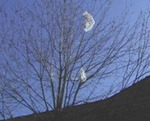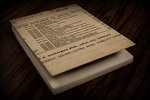Bag Taxes Work Shockingly Well
For something that has caused so much ecological destruction, locked up so many natural resources into a non-reusable form, and plagued us all with their tendency to be filled by the clerk with either one small apple or six two-liter bottles of soda, it's turning out to be pretty easy to kick the bag habit. Washington D.C. enacted a five cent per bag tax on plastic grocery bags in January, and plastic bag usage has declined by a whopping 50% at minimum.
It's funny how easy it is to change human behavior with economics. The older I get, the more I wish I had gotten an Economics degree in college, because it's obviously the key to how the world works. (English Lit, awesome as it was, clearly has a diminished influence.)
It's funny how easy it is to change human behavior with economics. The older I get, the more I wish I had gotten an Economics degree in college, because it's obviously the key to how the world works. (English Lit, awesome as it was, clearly has a diminished influence.)





